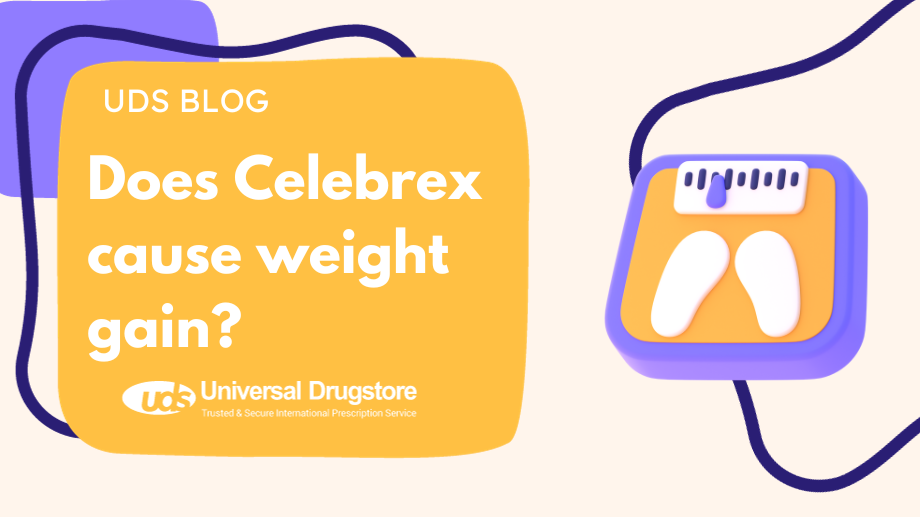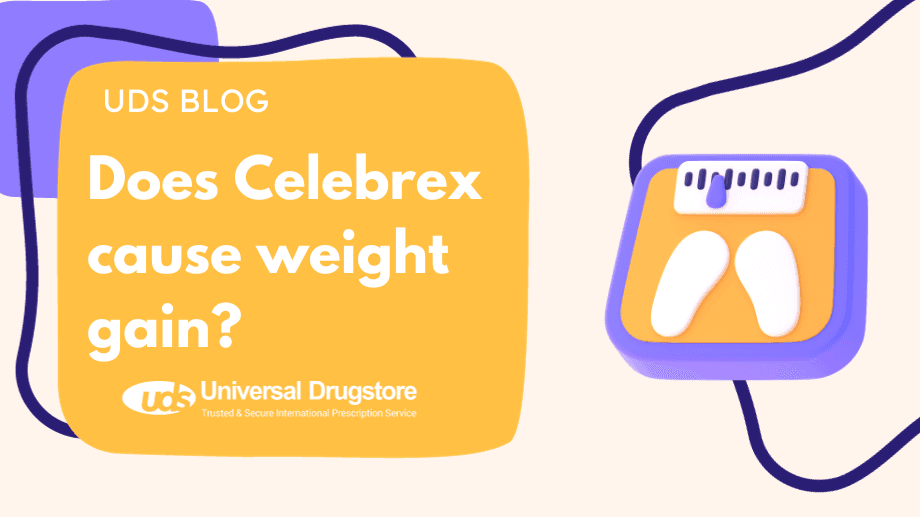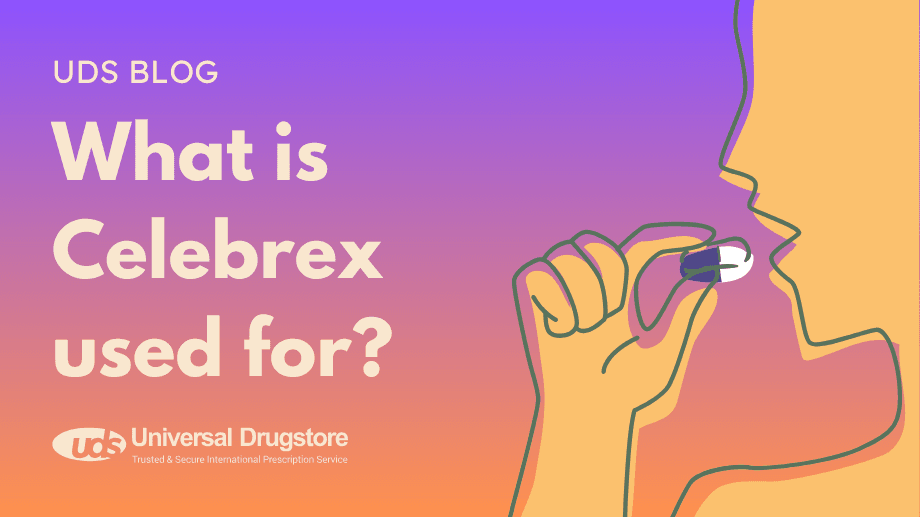Does Celebrex cause weight gain and why?

Osteoarthritis is the most common joint disorder, affecting the hands, knees, hips, back, and neck. Even being 10 pounds overweight increases the force on your knees by 30 to 60 pounds with each step. Celebrex (celecoxib) is a nonsteroidal anti-inflammatory drug (NSAID) prescribed to relieve pain and inflammation in osteoarthritis and other arthritic conditions.
During clinical trials, weight gain occurred in 0.1% to 1.9% of people taking Celebrex for osteoarthritis or rheumatoid arthritis. However, it’s unclear if Celebrex was the direct cause.
Weight gain may result from reduced physical activity due to joint pain, or fluid retention—a known side effect of Celebrex. Sudden weight gain from fluid retention may be a sign of heart failure, a rare but serious side effect. Other signs of heart failure include fatigue, shortness of breath, and swelling. Notify your healthcare provider immediately if you experience these symptoms.
Celebrex FAQs
What is Celebrex used for?
- Osteoarthritis
- Rheumatoid arthritis
- Juvenile rheumatoid arthritis (2 years and older)
- Ankylosing spondylitis
- Acute pain
- Primary dysmenorrhea (menstrual cramps)
What is the drug class of Celebrex?
Celecoxib, the active ingredient in Celebrex, is a COX-2 inhibitor. It reduces inflammation by blocking the cyclooxygenase-2 enzyme involved in producing inflammatory substances.
What is the dose of Celebrex?
Adults
- Osteoarthritis: 100 mg twice daily or 200 mg once daily
- Rheumatoid arthritis: 100–200 mg twice daily
- Ankylosing spondylitis: 200 mg once daily or 100 mg twice daily
- Acute pain or cramps: 400 mg once, followed by 200 mg if needed; then 200 mg twice daily
Children (2+ years with JRA)
- 22–55 lbs: 50 mg twice daily
- >55 lbs: 100 mg twice daily
What are the possible side effects of Celebrex?
Common in adults:
- Headache
- Indigestion
- Abdominal pain
- Upper respiratory infection
- Sinus infection
- Diarrhea
Common in children:
- Headache
- Fever
- Stomach pain
- Nausea
- Cough
- Cold symptoms
Other side effects:
- Gas, vomiting, constipation
- Muscle/joint pain
- Swelling of limbs
- Dizziness, trouble sleeping
- Dry mouth, skin rash
Serious risks:
- Heart failure (shortness of breath, fatigue, swelling)
- Stomach ulcers or bleeding (black stools, blood in vomit)
- Liver damage (yellowing skin/eyes, dark urine)
- Kidney damage (changes in urination)
- High potassium (nausea, muscle weakness)
- Severe skin reactions (rash, blisters)
Shop Medications
Note: Report adverse effects to the FDA at 1-800-FDA-1088 or www.fda.gov/medwatch.
Is it bad to take Celebrex with other medications?
Yes. It may interact with:
- Other NSAIDs (ibuprofen, naproxen)
- Blood thinners (warfarin, aspirin)
- SSRIs/SNRIs (fluoxetine, duloxetine)
- ACE inhibitors (lisinopril), ARBs (losartan), beta-blockers (atenolol)
- Diuretics (HCTZ, furosemide)
- Digoxin, fluconazole, lithium, methotrexate, cyclosporine
Is there a boxed warning with Celebrex?
Yes, for:
- Cardiovascular risk: May cause heart attack or stroke, especially with long-term use.
- GI risk: May cause ulcers, bleeding, or perforations — especially in older adults or those with a history of GI issues.
Who should not take Celebrex?
- People allergic to celecoxib, NSAIDs, aspirin, or sulfonamides
- Those who’ve had CABG surgery or plan to have it
What should your doctor know before prescribing Celebrex?
- Heart conditions, high blood pressure, prior stroke
- Liver/kidney issues, bleeding disorders
- Asthma, nasal polyps
- Pregnancy (avoid after 30 weeks)
- Breastfeeding
Can Celebrex cause weight loss?
No, weight loss was not reported in clinical trials. Report unexplained weight loss to your provider.
What if you can’t swallow Celebrex capsules?
Open the capsule and sprinkle the contents on a teaspoon of applesauce. Eat immediately. If needed, refrigerate for up to 6 hours at 35°F–45°F (2°C–8°C).
Does Celebrex cause constipation?
Yes, constipation occurred in up to 1.9% of patients in studies. If it persists or becomes bothersome, ask your provider or pharmacist for OTC remedies.
Related Medications
- Advil (ibuprofen)
- Anaprox DS (naproxen)
- Mobic (meloxicam)
- Cataflam (diclofenac)
- Voltaren Gel (diclofenac gel)
- Clinoril (sulindac)
- Lodine XL (etodolac ER)



